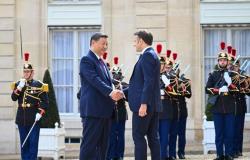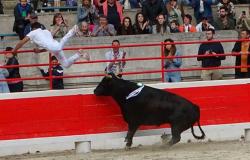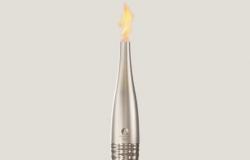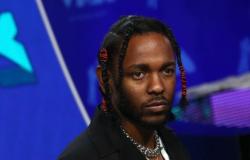In your book, you identify several lines of force which structure the history of Russia, the first of them being its geography…
This is a fundamental fact: Russia is the largest country in the world. Thirty times France! We, French, often tend to forget this parameter when we talk about Russia. But Russians are growing up aware of living in the largest country in the world. As children, they see the card every day at school. This pride is accompanied by a fear anchored in people’s minds for centuries: that this space could be invaded or shrunk.
However, it is gigantic…
Yes, but it is indefensible. It is a large Asian steppe which is not protected by “natural” ramparts like mountain ranges. This immensity seems vulnerable to them. The conviction has also been established that, in order to protect this territory, it is necessary to constantly expand. This is called “defensive expansionism.” This obsession has marked Russian history since Ivan the Terrible (1530-1584), the first tsar. Putin famously said in 2016: “Russia’s borders don’t end anywhere!” » He claimed to be joking, but we can think that it was not a joke… When we are aware of this sensitivity to space, we measure the trauma that was the fall of the Iron Curtain, therefore the loss of the shield formed by the countries of Eastern Europe, then the dislocation of the USSR, the emancipation of Ukraine, Georgia, Belarus…
The other line of force is messianism…
Many Russians define the greatness of their country by its territory, then by its religious foundation, Orthodoxy. We Europeans are convinced that the Pope and the Vatican are at the center of Christianity. Orthodoxy would be an exotic form of dissidence… The Russian perspective is completely opposite. For the Orthodox, the epicenter of religion was Jerusalem and then Constantinople, the second capital of the Roman Empire. When, in 1453, the city fell into the hands of the Turks, Moscow became, for them, the third capital, the “third Rome”, the city which would save the world by ensuring the influence of orthodoxy, “right thought”.
The journalist François Reynaert.
Céline Nieszawer/Flammarion
What place does Ukraine occupy in Russian history?
A primordial place: it is the cradle of Russian history, which takes shape around small principalities established by the Varangians and Vikings, around kyiv. We are between 900 and 1000. The Varangians are gradually laying the foundations of a state called “Rus”. But this entity was wiped out in the 13th century.e century when the Mongols invaded all of Asia, and as far as Hungary in Europe. The Mongols dominated for more than two centuries, destroying this world of Rus’, redrawing its map. kyiv, sacked, declines. At the end of the Mongol invasions, in the 15the century, the principality that became the most influential was a small town called Moscow.
What impact will the Mongol period have on Russian history?
During these two centuries, the Russian world was cut off from the West, from the intellectual developments of the Middle Ages and the Renaissance, and tied, particularly commercially, to Asia. This era marks the beginning for Russia of an identity tug of war that has never ceased: is its destiny on the side of Europe or Asia? Tsar Peter the Great brought, in the 18the century, a clear answer. He turns his country towards the West, creates Saint Petersburg, whose palaces must be as sumptuous as in Venice or Amsterdam, encourages trade, modernizes the administration. He does not go so far as to import the British-style parliamentary monarchy, he is an autocrat of crazy violence… In the 19th centurye century, many philosophers and writers, Turgenev in the lead, are also resolutely Westernists. Opposed to them are the “Slavophiles” like Dostoyevsky, who swear only by Orthodox religious identity and Slavic roots. During the 1920s, in circles of anti-Bolshevik emigration, we even saw the birth of Eurasianism, which wanted to make Russia a continent in its own right between China and Europe.
“Russians are growing up with the awareness and pride of living in the largest country in the world”
How does Vladimir Putin fit into this debate?
His priority is to stay in power. Also, for twenty-five years, he has played successively, according to his interests, on both counts, in turn close to the West, then self-proclaimed bulwark against “Western decadence”.
How do you analyze the issues currently in Ukraine?
I am more convinced than ever of the importance of a victory for the Ukrainians. In writing this book, I realized how much expansionism is a driving force in Russian history. Those who call for negotiations and ceding a third of Ukraine to Putin, assuming that this will calm his appetite for conquest, are mistaken. He needs the war politically. He won’t stop. Georgia, in 2008, was the first piece of a “game” which continues in Ukraine and could, tomorrow, continue in Moldova, or in the Baltic States.
Putin himself denounces NATO “imperialism”, and justifies his attack on Ukraine by the fact that the Americans would have provoked Russia by expanding NATO to its borders…
This is the eternal argument of pro-Putin! I always answer that all the Eastern European countries that joined NATO did so because democratically elected governments wanted it, because the people wanted it. For what ? To protect themselves precisely from Russian expansionism, and the sinister Putin regime, a model that they massively reject.
“The Great History of Russia, its empire, its enemies”, ed. Flammarion, 432 p., €23. E-book, €15.99.
The book
Journalist at “New Obs”, François Reynaert once again demonstrates, in “The Great History of Russia”, his talents as a teacher, his ability to illuminate history with a lively, limpid pen. From the beginnings in kyiv to the current regime, it retraces fifteen hundred years of history, describing with precision, far from clichés, the major players: Ivan the Terrible, Peter the Great, Catherine II, Lenin, Stalin, until to Putin and his oligarchs.






